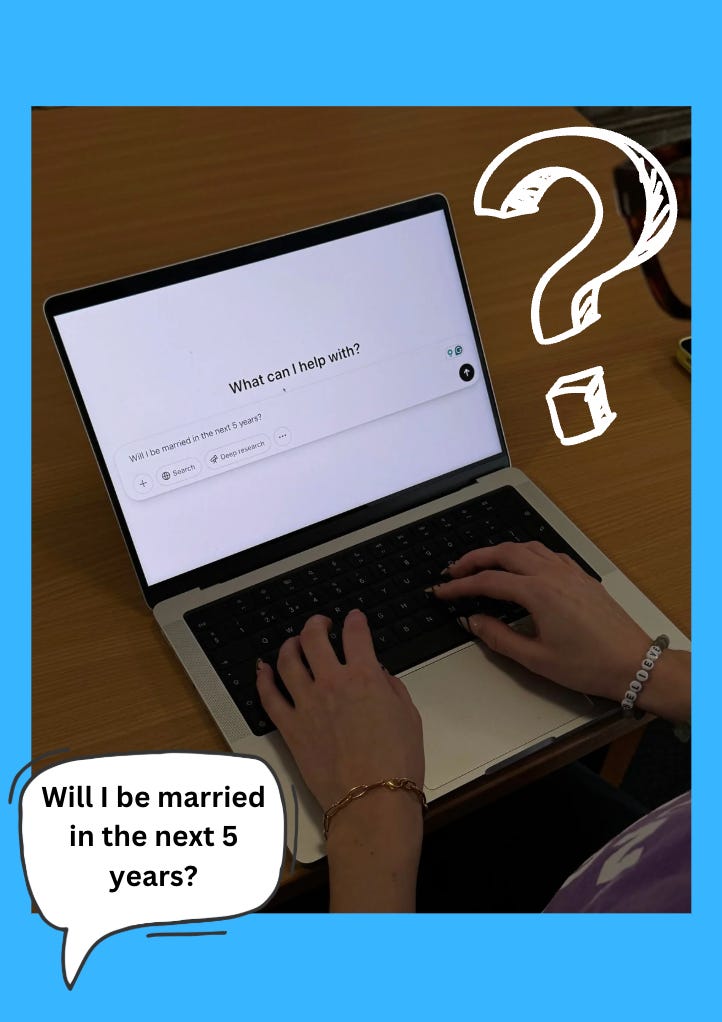Traditional tarot versus AI predictions
Todays fortune tellers have changed the game from traditional tarot to AI predictions and heres why
How has fortune-telling changed the game with ChatGPT, Copilot and other AI tools? Do you use traditional tarot readings? Do you ask AI data to answer your personal questions? Are the answers from AI accurate answers?
Fortune tellers have existed for as long as one can imagine. The game of traditional tarot readings shifted with the recent rise of Artificial Intelligence (AI), a computing technology capable of impersonating human intelligence. AI offers a simplified approach to lifestyle predictions and astrology. However, it is difficult to believe that AI can provide the same empathy and intuition that traditional tarot readers typically possess.
The traditional way to tell a fortune is to go to a human teller and ask spiritual, emotional, and sentimental questions in the hope that the outcome will be accurate. However, now that most people resort to AI predictions, especially GEN Z, it is certain that AI doesn't give such accurate and empathetic answers. Instead, it feeds individuals what they want to hear, not the absolute truth.
Can AI genuinely replicate the intuition and empathy that traditional astrologers or tarot readers provide in their practice?
“No, I don't think they will be able to replicate it very well because, again, it is heavily dependent on the information you put in. And it depends. That is really what defines what you get out of it. So, when it comes to empathy and intuition, the AI model doesn't have any of that. It essentially predicts the next word that's most likely to answer this kind of person's question.” - Harvey Hamilton
Of course, there will be consequences when society uses AI to ask life's big questions, but what are the implications? It's hard for AI to fully understand when individuals ask these significant questions, especially regarding religious and emotional issues, which can be personal questions. AI doesn't have the feel of body language and emotions that traditional real-life fortune tellers do, leading to the consequences of misunderstanding, uncertainty and possibly even offence. It's hard to believe people within society will be sucked into believing the AI tarot readings as it all starts to become normalised. However, it raises the question of...
Is the role of human fortune tellers changing as AI tools advance and become more common?
“I think I think their jobs are safe. I don't think they'll be replaced, but I I think people will try, right. I think it might. It might be a good idea to be honest, to kind of try and make an AI model that is seemingly trained on much on data that leans a lot more towards fortune tellers. Or that kind of profession or kind of spiritual understanding.
Maybe it can give better answers. I think at the moment you can get kind of customised gpts as what they call them so. Those are kind of trained on different data from the overall massive models. That kind of lean them in those different directions. So maybe again, as they become more advanced. I think they could. It's hard to tell, right now. It depends on your opinion of whether you think that's kind of something that can happen or not.” - Harvey Hamilton
It's clear that AI is not able to be morally responsible, and AI dependence is harmful to an individual's mental well-being with its human-like abilities. People can become attached to the realistic features AI answers hold. However, despite all these concerns, people will be led towards AI tarot over traditional just because of the simplicity of AI nowadays. It is super accessible compared to traditional tarot readings. Clearly, some people do not want to go through the effort to access them when they have AI software, which has become so accessible to society.
So, how is it going to impact the future?
It's hard to know how society relying on AI predictions will impact the future. ChatGPT is relatively new to the world, so it's hard to tell whether something like this is harmless enjoyment or whether it will influence society's decision-making.
ChatGPT has changed the game regarding fortune telling nowadays; people want the ability to access their questions there and then with no additional cost. I personally don't use traditional tarot readings; however, there's a lot of fun and enjoyment involved when it comes to asking AI these questions, and at the moment, I don't see any danger in it. However, I can understand that some people's spiritual beliefs are more potent than others, so I would still use the traditional tarot readings to take them more seriously. But it's clear ChatGPT answers will not be nearly as accurate as tradional real-life tarot readings. Not having that emotional connection you cannot form with artificial intelligence will lead to inaccuracy.





